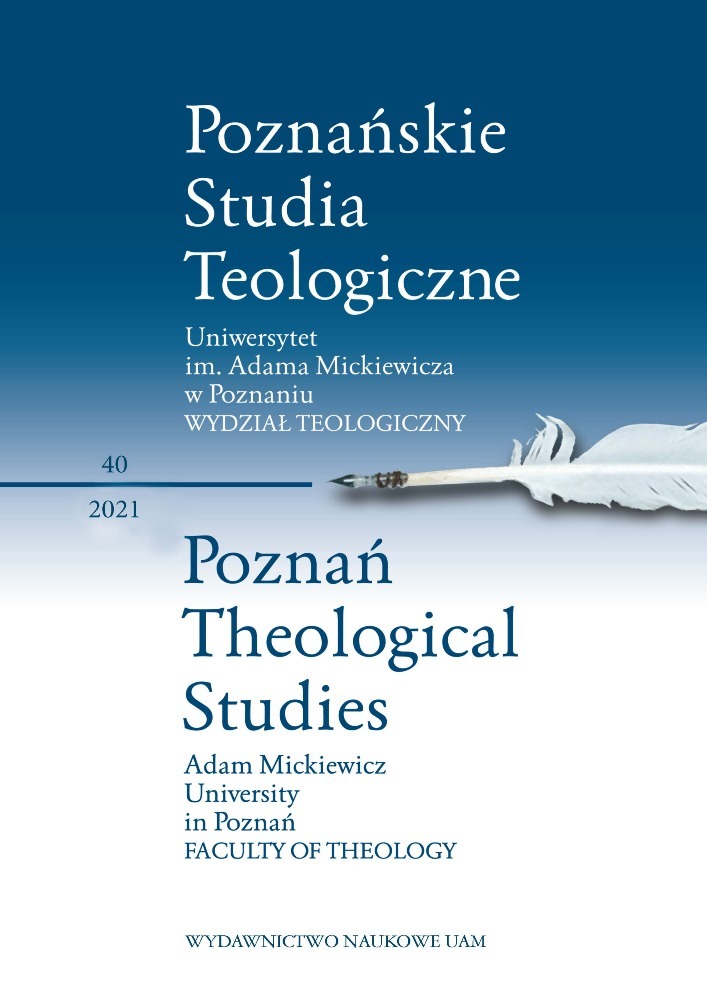Abstract
The need to enliven the catechesis of the elderly and to take advantage of the richness and experience of this social group resounds significantly in contemporary catechetical reflection. This is mainly due to the fact that society, and thus the community of the Church, is affected by the problem of the progressive aging of its members. In the catechetical dimension, it becomes important, among other things, to take appropriate steps to adapt the catechesis of the elderly in terms of appropriate content, tools and structure. The suggested specific educational offer should stimulate and encourage to verify and deepen one’s own religious knowledge, help answer nagging questions, especially existential ones in an eschatological perspective, and find a place and role of the elderly in the community of believers. In this study, the notion of old age and aging in the social and theological aspect was first analyzed, then the basic assumptions of neuroandragogy and the most important aspects of catechesis of the elderly were presented. The next part featured practical implications for the use of selected elements of andragogy and neuroandragogy in catechesis and the broadly understood activity and religious education of the elderly.
References
Alberich E., Binz A., Forme e modelli di catechesi con gli adulti, Torino 1995.
Andragogika, in: C. Kupisiewicz, M. Kupisiewicz, Słownik pedagogiczny, Warszawa 2009, p. 11.
Edukacja dorosłych, red. M. S. Knowles, E. F. Holton, R. A. Swanson, Warszawa 2009.
Harris J. G., Biblical Perspectives on Aging. God and the Elderly, New York 2008.
Houle C., The Design of Education, Michigan 1972.
Jan Paweł II, List do osób w podeszłym wieku, http://www.opoka.org.pl/biblioteka/W/WP/jan_pawel_ii/listy/do_starszych_01101999.html# [accessed on 07.04.2021].
Katecheza po Soborze Watykańskim II w świetle dokumentów Kościoła, red. W. Kubik, t. 1, Warszawa 1985.
Kidd J. R., How Adults Learn, Englewood Cliffs 1978.
Knowles M., The Adult Learner: A Neglected Species, Houston 1973.
Konferencja Episkopatu Polski, Dyrektorium Katechetyczne Kościoła Katolickiego w Polsce, Kraków 2001.
Kongregacja ds. Duchowieństwa, Dyrektorium ogólne o Katechizacji, Poznań 1998.
Kongregacja ds. Duchowieństwa, Ogólna Instrukcja Katechetyczna, in: Katecheza po Soborze Watykańskim II w świetle dokumentów Kościoła, red. W. Kubik, t. 1, Warszawa 1985.
Mieskes H., Geragogik -Paedagogik des Alters und des altern Menschen, “Paedagogische Rundschau” 2(1970), pp. 90-101.
Neuroandragogika w edukacji dorosłych zagrożonych wykluczeniem. Materiały dlanauczycieli i edukatorów osób dorosłych, http://www.neuroandragogy.eu/wp-content/uploads/2018/10/neuro_io2_pl_lekki.pdf [accessed on 08.04.2021].
O neuroandragogice, http://www.neuroandragogy.eu/index.php/pl/o-neuroandragogice/ [accessed on 09.04.2021].
Ostański P., Starość, in: Encyklopedia Katolicka KUL, t. 18, Lublin 2013, c. 854-860.
Papieska Rada ds. Krzewienia Nowej Ewangelizacji, Dyrektorium o katechizacji, Kielce 2020.
Pismo Święte Starego i Nowego Testamentu w przekładzie z języków oryginalnych, Poznań-Warszawa 1990.
Porzych K., Kędziora-Kornatowska K., Polak A., Porzych M., Psychologiczne aspekty starzenia się i starości, “Gerontol Pol” 2004, 12(4), pp. 165-168.
Skreczko A., Starość, in: Słownik małżeństwa i rodziny, red. E. Ozorowski, Warszawa-Łomianki 1999, pp. 425-429.
Sobór Watykański II, Dekret o apostolstwie świeckich, in: Sobór Watykański II, Konstytucje, dekrety, deklaracje, Poznań-Warszawa 1967.
Sobór Watykański II, Konstytucja duszpasterska o Kościele w świecie współczesnym, in: Sobór Watykański II, Konstytucje, dekrety, deklaracje, Poznań-Warszawa 1967.
Soravito L., La catechesi degli adulti. Orientamenti e proposte, Torino 1998.
Starzenie się, in: Nowa encyklopedia powszechna PWN, t. 6, Warszawa 1996, p. 32.
Taraszkiewicz M., Neuropedagogika – edukacja 21 wieku, https://www.edunews.pl/badania-i-debaty/opinie/244-neuropedagogika-edukacja-21-wieku [accessed on 08.04.2021].
Wojciechowski K., Andragogika, in: Encyklopedia pedagogiczna, red. W. Pomykało, Warszawa 1996, pp. 25-27.
Żylińska M., Neurodydaktyka, czyli nauczanie przyjazne mózgowi, www.ore.edu.pl [accessed on 08.04.2021].
Żylińska M., Neurodydaktyka. Nauczanie i uczenie się przyjazne mózgowi, Toruń 2013.
License
Copyright (c) 2021 Mirosław Gogolik

This work is licensed under a Creative Commons Attribution-NonCommercial-NoDerivatives 4.0 International License.

